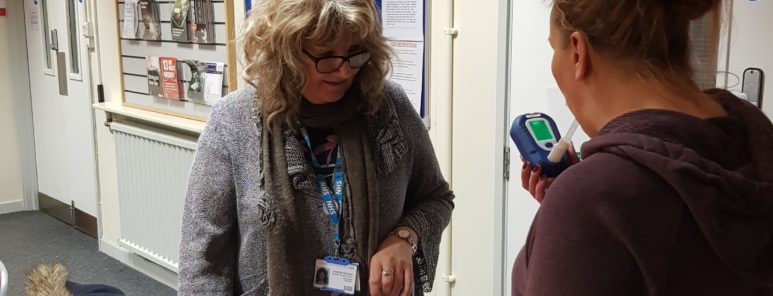Adwick fire station is to play host to a series of Stop Smoking Services to help Doncaster residents quit the habit.
South Yorkshire Fire & Rescue (SYFR) is working in partnership with South West Yorkshire Partnership NHS Trust, to provide a meeting group once a week at Adwick station to help support residents who feel that the time has come to take that step to a healthier lifestyle.
The Stop Smoking sessions offer a wide range of support which is able to aid all sorts of smokers, even those who have been smoking for long periods of time and may think that they wouldn’t be able to give up. Smokers who seek help have a much greater chance of success than those who do not.
The sessions. take place every Tuesday evening from 5:30pm to 8pm. If you would like to attend the next Stop Smoking group at Adwick fire station, please call 0800 612 0011 (free on landline) or 0330 660 1166 (free on mobile).
Steve Helps, Head of Prevention and Protection at SYFR said; “Smoking is the biggest cause of preventable disease and premature deaths in the UK. It is also a major cause of accidental death, injury and property damage from house fires attributed to smoking in the UK every year. This initiative is a positive step towards keeping the people of South Yorkshire healthier and safer in their own homes.”
Mark Falcomer at South West Yorkshire Partnership NHS Foundation Trust said; “Yorkshire Smokefree provides expert NHS advice and support for anyone who wants to stop smoking. So when you’re ready to quit, we’re ready to help. Our friendly experts will help you find the best way to quit and provide support throughout your journey, so you’re smoke-free in no time.
“We offer a range of resources to suit your needs and ensure you’re smoke-free as soon as possible.
“You are five times more likely to quit smoking with products and support which are available for free with Yorkshire Smokefree Doncaster. Products include patches, gum, lozenges inhalator, mouth spray and champix.”
SYFR is one of the signatories of the Yorkshire and Humber Emergency Services Prevention and Early Intervention Consensus Statement, which has been co-ordinated by Public Health England.
With demand for health and social care rising, the main focus of the agreement is for emergency services to use their joint intelligence, skills and resources to support communities with ill-health prevention and early intervention where problems are identified.
This includes greater sharing and development of referral pathways into key services such as falls prevention and support for mental health, alcohol and drug problems, advice to keep homes warm and social support to combat loneliness and isolation.

